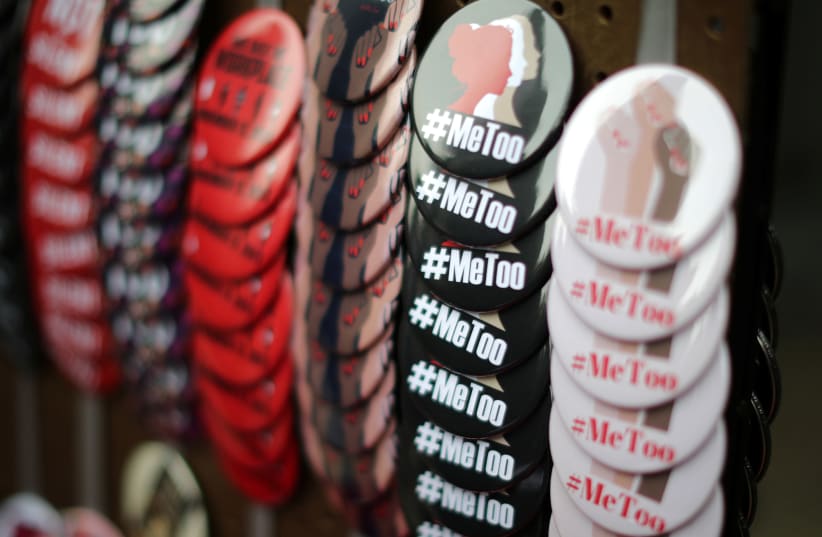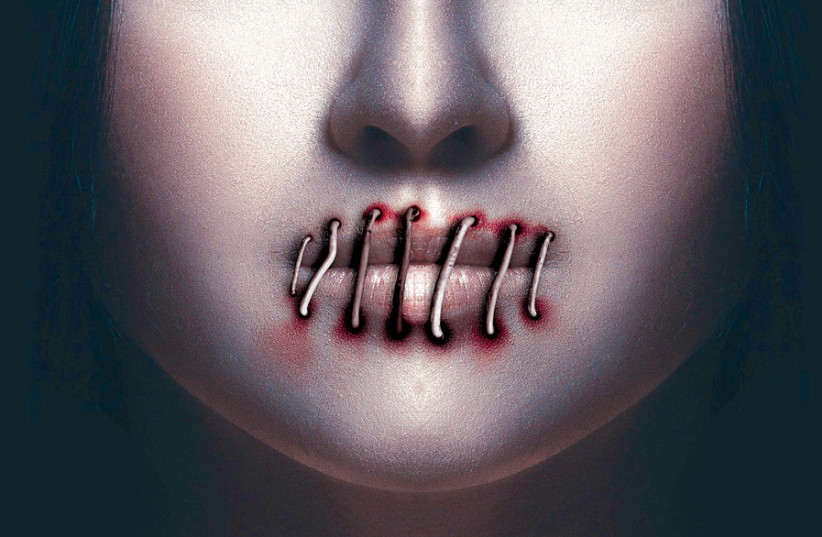She whispered to me, “Is it OK if we don’t put my name on this story? No one can know that it was me. It would ruin their life. It would ruin mine, too.”
Over the last few years, I have heard the voices of women in the Jewish community growing bolder. Many women are sharing their stories for the purpose of reclaiming their narratives, validating the experiences of others, and making those who are listening feel less alone. Sometimes, they stand up and are prepared to be activists for their cause, to shed light in the darker corners of our community where secrets fester. The more it comes to topics that are rife with shame, the more challenging it can be to say the words that need to be spoken aloud.
Some of the most challenging stories to share are the stories of sexual assault, sexual or emotional abuse, and harassment. Sometimes incidents are so clear-cut, so visceral that there can be no mistaking to a woman or man who has been hurt, what has happened to them. Sometimes the lines can be so blurry, we can feel the emotional or physical pain but don’t necessarily have the language to understand the line that’s been crossed. It may take years before there is a light that shines with clarity on the situation. We may have been gaslit or misdirected by family, peers, institutions, or colleagues. I hear these stories every day of people trying to put their lives back together, after trying to make sense of what happened to them. After trying to bring their truth out into the world that would rather keep the secrets of the perpetrators in the dark.
In the last few weeks, there have been so many stories: politicians, communal leaders, students, everyday men and women who have abused their power in their relationships and then had many covering up for them. It has taken an incredible amount of courage for the people who have been abused and assaulted to stand up and share the truth of what truly happened to them. They need to shout so loudly to be heard, and often the response is shaming. They seek justice and the community slings back denial.
“But he was my friend.”
“But I voted for them.”
“But she was my colleague.”
“But he was my rabbi.”
We all are comforted to think that the bubble of safety in which we believe we live precludes this kind of physical, sexual, or emotional violence. But it’s prevalent and all around you.
In my research, I was disturbed to discover that i24 News reported that in 2018, 95% of cases of the hundreds of thousands of cases of sexual harassment in Israel were not reported to the police. That’s an astounding statement, but it’s so clear to me why.
There are three issues at hand. The first is the fact that these situations are so often denied. When these acts of violence are shared, entire systems are threatened to collapse: family structures, workplaces, communities, even governments. The truth can be so heinous, so shocking, such a betrayal of the faith placed in these powerful or beloved people, it can disrupt our whole world to acknowledge these cases. Panic kicks in and individuals, institutions, and authorities feel the instinct to cover up and reject these reality-altering truths. Instead of healing lives by seeking justice, those that have the capacity to do something about it, often capitulate to fear.
Second, most often when people are assaulted or abused it is by someone they know. Oftentimes, it is someone they love; a family member, an intimate partner, a friend. These are people that we have relationships with, someone we sit next to on the bus, our deskmate, the person who sits across from us at the Shabbat table every week, the person we trust who leads from the pulpit. This level of betrayal can rock a whole world, and victims know that if they tell the truth the perpetrator’s world may be destroyed, and as they are closely connected to them, part of their world burns down too.
Third, is the issue of language. Healthy and open discussions of sexuality, sexual well-being, pleasure, consent and boundaries are still so taboo at home and at school. Our children are exposed to a glamorized version of sex and relationships on TV and music videos and are learning about the world from TikTok and Instagram. It is parents, families, and educators who have a responsibility to offer our children a healthy reality-based education about these issues.
We need to use anatomical words and not euphemisms to teach our children to understand their bodies. We need to have open conversations about power dynamics and safety. We need to encourage them to share their realities and mean it when we promise them they will be heard and believed. They need to know that they have the tools and the language to assert themselves and to say no. We need to help them establish boundaries with peers and the powerful figures in their lives; we need to teach them what is not okay.
It can be difficult. So many in previous generations did not receive this kind of guidance, support, or education from parents, teachers or communities. We are used to hoarding our dark secrets. But it’s not too late for us; let’s educate ourselves. Find that language. Share it with the people in our lives. You might make space for someone to tell their truth. You might find that with new language, you may begin a healing journey yourself. Perhaps you’ll discover that you have your own stories to share.
The writer, a master of social work (MSW), is founder and publisher of The Layers Project Magazine, which seeks to tell the stigmatized stories of Jewish women through connection and healing. She is the author of Layers: Personal Narratives of Struggle, Resilience, and Growth from Jewish Women, a compilation of stories of women living in Israel, available at Korenpub.co.il, Amazon and local bookstores.

